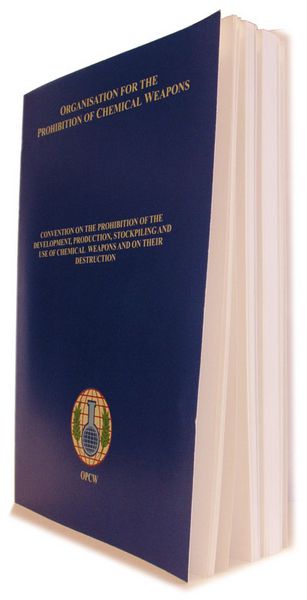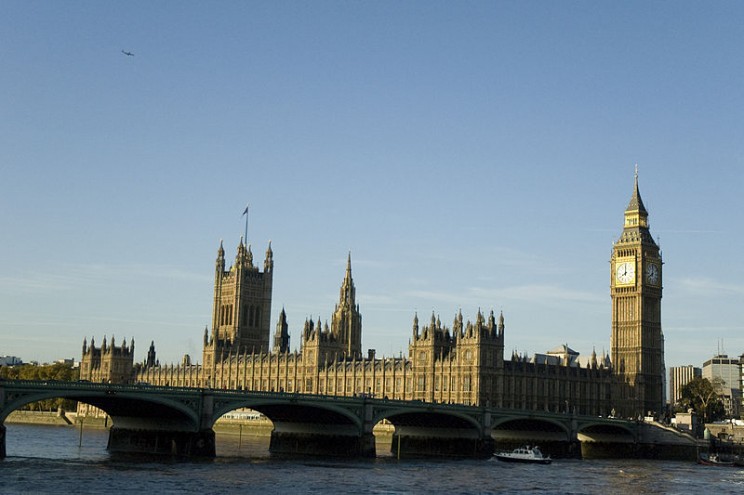By Barry S. Levy and Victor W. Sidel
Chemical weapons are horrendous agents. Small amounts can kill and severely injure hundreds of people in a matter of minutes, as apparently occurred recently in Syria. Some analysts consider them “poor countries’ nuclear bombs.” The international community has, with the Chemical Weapons Convention, banned their use, development, production, acquisition, stockpiling, retention, and transfer. Nevertheless, several countries have continued to develop, produce, acquire, stockpile, retain, and transfer these weapons.
 Chemical weapons were used on a wide scale during World War I and were also used during World War II. Saddam Hussein used them in Iraq in the 1980s to crush internal opposition to his regime. A terrorist cult in Japan used them twice in the mid-1990s, killing 20 people and injuring hundreds. Now they have been used in Syria — maybe more than once.
Chemical weapons were used on a wide scale during World War I and were also used during World War II. Saddam Hussein used them in Iraq in the 1980s to crush internal opposition to his regime. A terrorist cult in Japan used them twice in the mid-1990s, killing 20 people and injuring hundreds. Now they have been used in Syria — maybe more than once.
Their use in Syria cannot go unchecked. But that is not the issue before the US Congress. The issue is whether or not President Obama should authorize the “limited” use of cruise missiles, launched from US ships in the eastern Mediterranean, to “degrade” Syrian President Assad’s ability to launch additional attacks.
There are three reasons why we oppose such a strike.
First, such an attack by the United States would likely violate international law and undermine the United Nations’ ability to enforce the Chemical Weapons Convention. The report of UN weapons inspectors who investigated the recent attack has not yet been issued. The United States does not have the right to enforce international treaties — militarily or by other means.
Second, a strike by the United States would have uncertain consequences within Syria. It is likely to kill and injure noncombatant women, men, and children. It may lead President Assad or others in Syria to use chemical weapons in retaliation. And it may lead to wider access to the massive store of chemical weapons there, leading to further use of chemical weapons in Syria — and beyond.
Third, and most importantly, such a strike by the United States would have uncertain consequences throughout the Middle East and beyond. It could lead to a much wider war in this region, where there is an overabundance of weapons supplied by the United States, Russia, and other countries. Such a strike would be equivalent to tossing a match into a barrel of gasoline. There is already much conflict in this region within countries, most prominently within Egypt and Iraq, and there is much potential conflict between countries. The reaction by several countries and non-state actors in the Middle East (and beyond) to a US strike cannot be predicted, but there is a predictably high likelihood of a miscalculation, or a whole series of miscalculations, that could easily lead to a much wider conflagration. We should remember that the assassination of one person ignited World War I.
The civil war in Syria, which has already led to more than 100,000 deaths and two million refugees, cries out for a nonmilitary solution. There needs to be a response to the chemical weapons attack there, but it should be an international nonmilitary response — not a US cruise missile attack that is likely do more harm than good. The suddenly increased focus on the civil war in Syria represents an opportunity for the international community to find ways to end this conflict and to promote peace in the region.
Barry S. Levy, MD, MPH, and Victor W. Sidel, MD, are co-editors of the following books, each in its second edition, published by Oxford University Press: War and Public Health, Terrorism and Public Health, and Social Injustice and Public Health. They are both past presidents of the American Public Health Association. Dr. Levy is an Adjunct Professor of Public Health at Tufts University School of Medicine. Dr. Sidel is Distinguished University Professor of Social Medicine Emeritus at Montefiore Medical Center and Albert Einstein Medical College and an Adjunct Professor of Public Health at Weill Cornell Medical College.
Subscribe to the OUPblog via email or RSS.
Subscribe to only current affairs articles on the OUPblog via email or RSS.
Image credit: Cover of the Chemical Weapons Convention used for the purposes of illustration via opcw.org.
The post The case against striking Syria appeared first on OUPblog.

By Matthew Flinders
The 29 August 2013 will go down as a key date in British political history. Not only because of the conflict in Syria but also due to the manner in which it reflects a shift in power and challenges certain social perceptions of Parliament.
“It is very clear to me that Parliament, reflecting the views of the British people, does not want to see British military action,” the Prime Minster acknowledged, “I get that and the Government will act accordingly.” With this simple statement David Cameron mopped the blood from his nose and retreated to consider the political costs (both domestically and internationally) of losing the vote on intervention in the Syrian conflict by just 13 votes. While commentators discuss the future of ‘the special relationship’ with the United States, and whether President Obama will risk going into Syria alone, there is great value is stepping back a little from the heat of battle and reflecting upon exactly why the vote in the House of Commons matters. In this regard, three inter-related issues deserve brief comment.
The broader political canvas on which the vote on military intervention in Syria must be painted can be summed up by what is known as the Parliamentary Decline Thesis (PDT). In its simplest manifestation the PDT suggests that the government became gradually more ascendant over Parliament during the twentieth century. Texts that lamented the ‘decline’ or ‘death’ of Parliament — such as Christopher Hollis’ Can Parliament Survive? (1949), George Keeton’s The Passing of Parliament (1952), Anthony Sampson’s Anatomy of Britain (1962), Bruce Lenman’s The Eclipse of Parliament (1992), to mention just a few examples — have dominated both the academic study of politics and how Parliament is commonly perceived.
What the vote on Syria reveals is the manner in which the balance of power between the executive and the legislature is far more complex than the PDT arguably allows for. There is no doubt that the executive generally controls the business of the House but independent-minded MPs are far more numerous, and the strength of the main parties far more constrained, than is generally understood. (Richard Crossman’s introduction to the 1964 re-print of Walter Bagehot’s The English Constitution provides a wonderful account of this fact.)

Drilling down still further, this critique of the PDT can be strengthened by examining the changing constitutional arrangements for the use of armed force. The formal legal-constitutional position over the use of armed force is relatively straightforward: Her Majesty’s armed forces are deployed under Royal Prerogative, exercised in practice by the Prime Minister and Cabinet. However, the last decade has seen increased debate and discussion about Parliament’s role in approving the use of armed force overseas. From Tam Dalyell’s proposed ten-minute rule bill in 1999 that would have required ‘the prior approval — by a simply majority of the House of Commons — of military action by the UK forces against Iraq’ through to the vote on war in Iraq on 18 March 2003, the balance of power between the executive and legislature in relation to waging war has clearly shifted towards Parliament. Prior assent in the form of a vote on a substantive motion is now required before armed force can be deployed. The problem for David Cameron is that he is the first Prime Minister to have been defeated in a vote of this nature.
Defeat for the coalition government brings us to our third and final issue: public engagement and confidence in politics (and therefore politicians). The data and survey evidence on public attitudes to political institutions, political processes and politicians is generally overwhelmingly negative with a strong sense that MPs in particular have become disconnected from the broader society they are supposed to represent and protect. The public’s perception is no doubt related to the dominance of the PDT but on this occasion it appears that a majority of MPs placed their responsibility to the public above party political loyalties.
With less than 22% of the public currently supporting military intervention in Syria, Parliament really has ‘reflected the views of the British people’. The bottom line seems to be that the public understands that ‘punitive strikes’ are unlikely to have much impact on a Syrian President who has been inflicting atrocities on his people for more than thirty months. (Only in Britain could war crimes in Syria be relegated for several months beneath a media feeding frenzy about Jeremy Paxman’s beard!) War is ugly, brutal, and messy; promises of ‘clinical’ or ‘surgical’ strikes cannot hide this fact.
At a broader level — if there is one — what the ‘war vote’ on the 29 August 2013 really reveals is that politics matters and sometimes works. Parliament is not toothless and it has the ability to play a leading role in restraining the executive in certain situations. Could it be that maybe politics isn’t quite as broken as so many ‘disaffected democrats’ seem to think?
 Professor Matthew Flinders is Director of the Sir Bernard Crick Centre for the Public Understanding of Politics at the University of Sheffield. He wrote this blog while sitting in the Casualty Department of the Northern General Hospital with a broken ankle and is glad to report that he received a wonderful standard of care.
Professor Matthew Flinders is Director of the Sir Bernard Crick Centre for the Public Understanding of Politics at the University of Sheffield. He wrote this blog while sitting in the Casualty Department of the Northern General Hospital with a broken ankle and is glad to report that he received a wonderful standard of care.
Author of Defending Politics (2012), you can find Matthew Flinders on Twitter @PoliticalSpike and read more of Matthew Flinders’s blog posts here.
Subscribe to the OUPblog via email or RSS.
Subscribe to only politics articles on the OUPblog via email or RSS.
Image credit: London Houses of Parliament and Westminster Bridge. By Francesco Gasparetti [CC-BY-2.0], via Wikimedia Commons.
The post Why Parliament matters: waging war and restraining power appeared first on OUPblog.

 Chemical weapons were used on a wide scale during World War I and were also used during World War II. Saddam Hussein used them in Iraq in the 1980s to crush internal opposition to his regime. A terrorist cult in Japan used them twice in the mid-1990s, killing 20 people and injuring hundreds. Now they have been used in Syria — maybe more than once.
Chemical weapons were used on a wide scale during World War I and were also used during World War II. Saddam Hussein used them in Iraq in the 1980s to crush internal opposition to his regime. A terrorist cult in Japan used them twice in the mid-1990s, killing 20 people and injuring hundreds. Now they have been used in Syria — maybe more than once.



 Professor Matthew Flinders is Director of the Sir Bernard Crick Centre for the Public Understanding of Politics at the University of Sheffield. He wrote this blog while sitting in the Casualty Department of the Northern General Hospital with a broken ankle and is glad to report that he received a wonderful standard of care.
Professor Matthew Flinders is Director of the Sir Bernard Crick Centre for the Public Understanding of Politics at the University of Sheffield. He wrote this blog while sitting in the Casualty Department of the Northern General Hospital with a broken ankle and is glad to report that he received a wonderful standard of care.